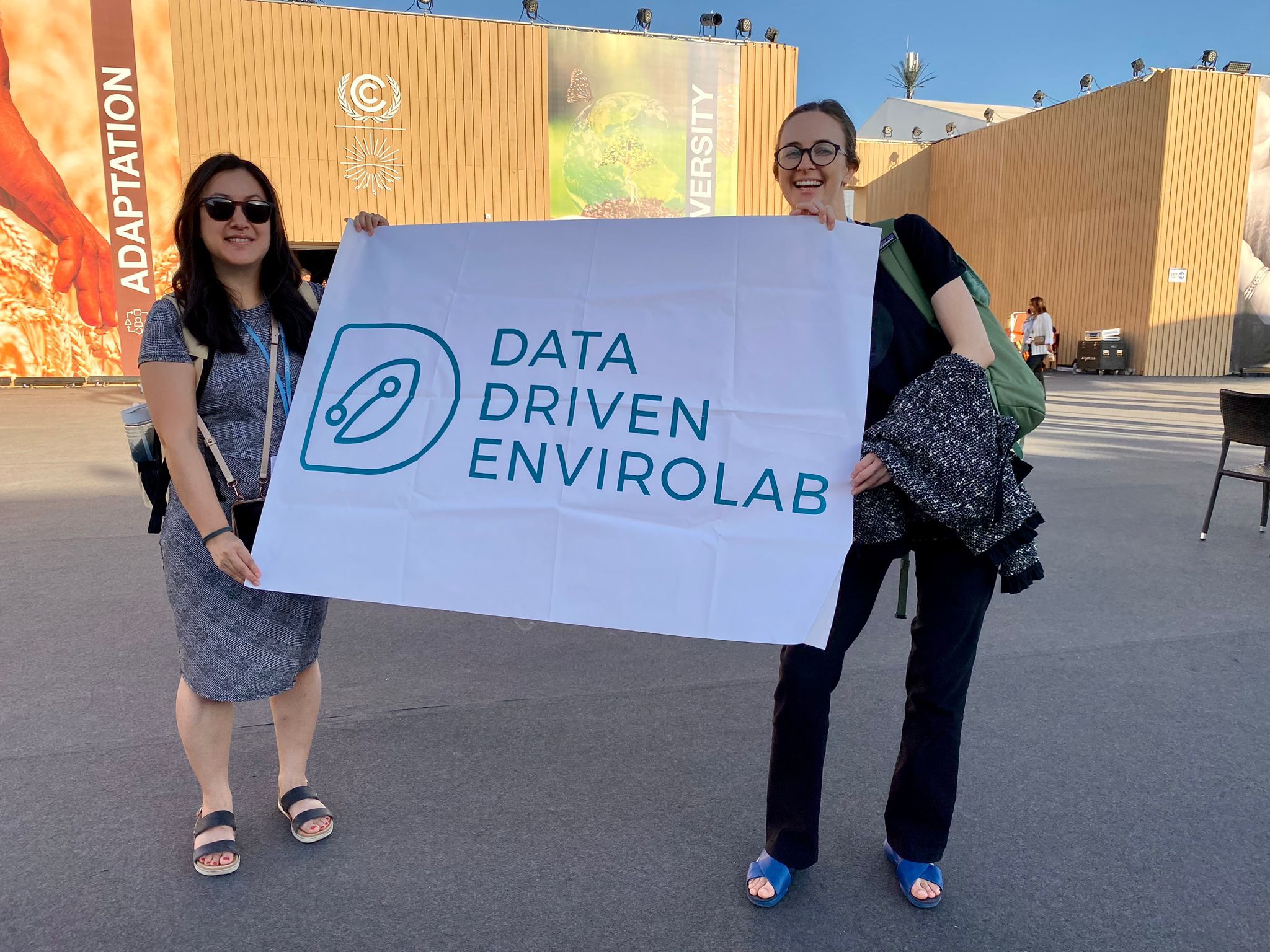
Last month, the Data-Driven EnviroLab (DDL) participated in the United Nations COP27 Climate Conference to share our work in multiple domains. Here’s a recap of the major themes where the DDL contributed research and insights.
Emerging Technologies and Climate Data
We have work to do to improve the usability and interoperability of climate data so that we can track global climate ambition and progress of actors – especially non-state actors, or NSAs – towards their climate action goals.
This challenge was front and center at COP27, since the Paris Agreement’s first Global Stocktake – when national governments and the United Nations Climate Change Secretariat (UNFCCC) are working to evaluate efforts to mitigate, adapt and finance climate change – will culminate in 2023 and solid data are necessary for this effort.
During the first week of COP27, our partner OpenEarth Foundation launched the OpenClimate Network, an online platform connecting climate data at multiple scales. DDL worked with OpenEarth to design the portal, which provides a way to ‘nest’ climate data and compare a city’s climate data to its national government. You can watch a recording of the launch event here.
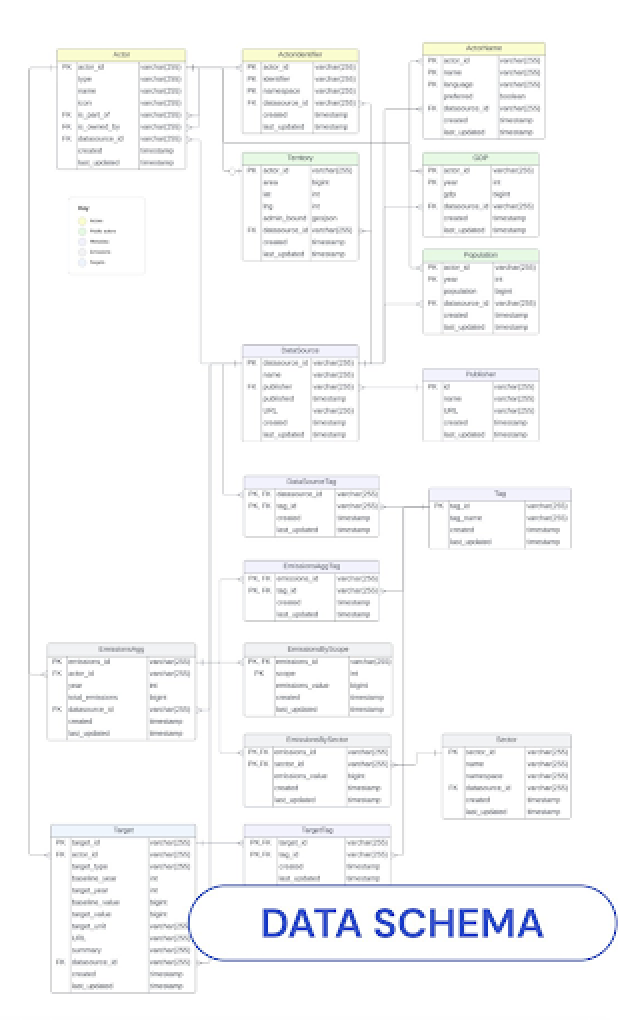
Climate data is incredibly heterogeneous and fragmented. Dozens of methods, assumptions, and boundary definitions mean that an emissions datapoint (tCO2 or CO2e) are not meaningful without metadata (data about the data) and other critical information.
Data-Driven EnviroLab worked with OpenEarth to build a data model, a way of explaining how different variables relate to each other, that allows for harmonization between different datasets. Here’s a look at our open data model/schema to help identify necessary metadata and indicators that would help unpack a single emissions datapoint.
The OpenClimate Network is a first step towards this “Climate Internet”, or a federated data commons that allows for a decentralized approach to data sharing, protecting privacy, data provenance, and ownership. We make this point here in a Nature Portfolio correspondence.
Towards this goal, we have built the Climate Action Data 2.0 community to build a network of digital technologists, climate agents, policy actors to build and mobilize this future.
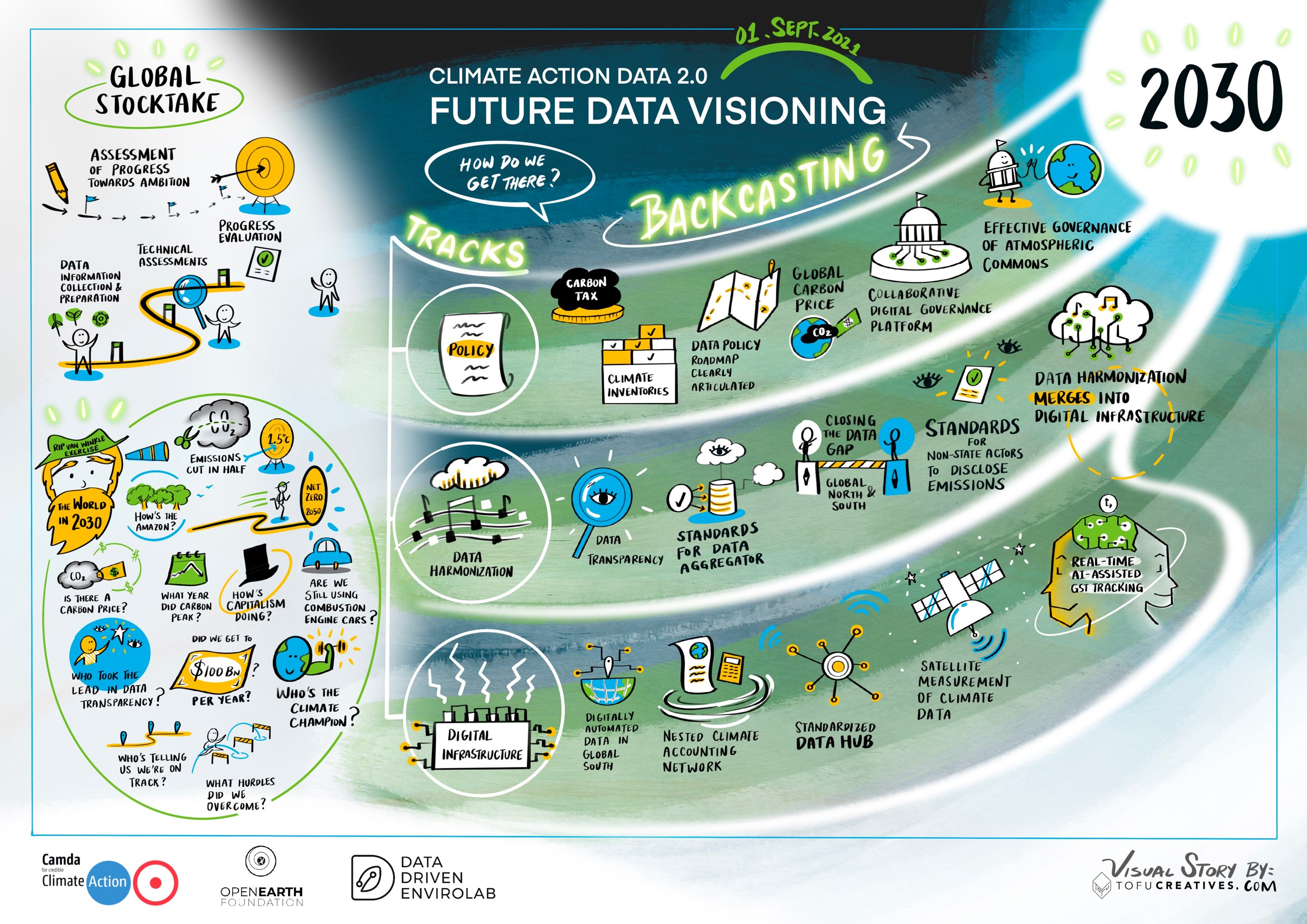
There were a lot of COP27 announcements of new data platforms, from Bloomberg’s Net-Zero Public Utility to Carbon Call. Although these efforts may risk greater data fragmentation, sticking to decentralized & open data ethos should allow for decentralized architecture to connect them.
Global Stocktake Climate Datathon
DDL partnered with OpenEarth Foundation in the months leading up to COP27 to host the first-ever Global Stocktake (GST) Climate Datathon to analyze and visualize global progress towards climate mitigation, adaptation, and finance goals.
The GST Datathon launched late September at #NYCClimateWeek and participants had ~2.5 weeks to hack a prompt. We had more than 100 participants tackle challenges ranging from carbon trading to ocean resilience to understanding the complicated network of international cooperative initiatives.
A team of expert judges selected two winning submissions: Team Turn the Tide and Team ActInsight, who presented their findings at COP27.
Team Turn the Tide developed a way of scoring countries’ ocean resilience to indicate their vulnerability, commitment, and policies to achieve ocean resilience.
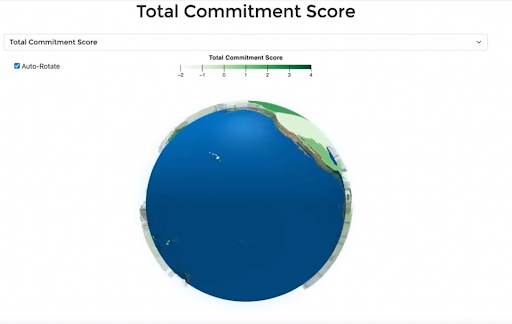
Team ActInsight developed an interactive visualization platform that allows exploration of membership in 150 international cooperative climate initiatives and built all data into an open API.
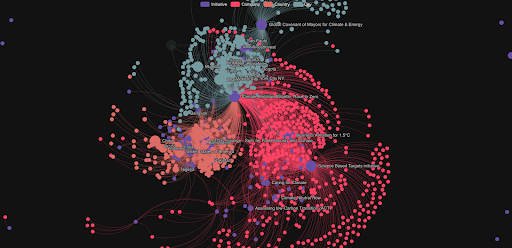
Arboertica and a student team from Yale School of the Environment were also awarded by judges for their entries on ocean resilience and carbon trading.
Tracking Ambition and Progress of Non-State Actors
Midway through COP27, DDL released a report in collaboration with Copernicus Institute of Sustainable Development, Utrecht University & CDP on “Global Climate Action 2022: Progress and Ambition of Cities, Regions, and Companies,” examining the progress & ambition of non-state actors.
Here are our key takeaways:
- Although more cities and regions are pledging mid-term and post-2030 targets, including net-zero targets, our report shows a loss in climate action momentum, with overall fewer cities & regions having post-2020 targets.
- Over 70% of cities and regions now report disaggregated emissions with at least one emissions scope, and more subnational actors are providing greater detail into their Scope 1, 2, and 3 emissions..
- Within our 13 focus economies, 1000+ companies totaling >16.4 trillion USD have made quantifiable emissions-reductions targets, mainly between 2025-2035. Companies from Manufacturing and Service sectors account for over half of all targets.
- We were only able to assess progress for a fraction of actors due to a lack of reported emissions data. Of those assessed, only 46% of subnationals and 75% of companies are on-track to meet their self-reported targets.
- Benchmarking targets against global reductions needed to meet the Paris Agreement goals, we found that over 90% of cities and regions’ targets do not meet ambition levels needed; 58% of those that do are also net-zero targets.
- Over 70% of companies are setting targets that will keep us below 2 degrees Celsius warming. From 2018 to now, companies’ ambitions have also increased. Still, we need more data on how companies will make this happen.
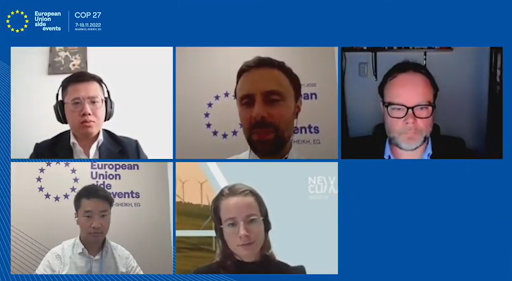
DDL research scientist Zhi Yi Yeo discussed these findings at a side event hosted by European Union Climate Action, where he spoke on a panel which included other authors and DDL collaborators on this report. Zhi Yi highlighted results from the report’s analysis of cities and regions, while Mark Roelfsema of the PBL Netherlands Environmental Assessment Team spoke about targets set by businesses. You can watch a recording of the panel here.
There is cause for cautious optimism – in cities and regions, we have seen momentum slowly increasing in terms of target-setting, post-2020. In summary, lots of work is left to be done to ensure actors meet these goals, to accomplish 1.5°C, or even 2°C warming and avoid disastrous climate scenarios, and we all have a part to play in stepping up to make it happen.
Read the full 2022 Global Climate Action report here.
Net-Zero Integrity for Non-State Actors
At COP26 in Glasgow, UN Secretary Antonio Guterres warned that the world needs to stop ‘treating nature like a toilet,’ taking aim at the growing number of cities, regions, companies and financial institutions racing to set net-zero goals that are often opaque and incredulous. The Net Zero Tracker shines a light on these entities, pointing out who is making good on these pledges and who might be greenwashing.
A High-Level Expert Group on Net Zero Integrity launched their long-awaited recommendations for how non-state Actors can set robust net-zero pledges during the first week of #COP27:
- Have short, medium, and long-term emissions reductions targets to reach net zero by 2050
- Align climate commitments with actions and investments
- Share relevant, comparable data on climate plans and progress
- Root climate action plans in science with third-party accountability mechanisms
- Commit to equity and justice in all plans, including climate action plans
DDL and the Net Zero Tracker consortium released an analysis during COP27 to provide a sense-check for where non-state actors stand on these guidelines. Unfortunately, we found an overall credibility deficit of net-zero targets, with fewer than 20% of national and subnational governments and only one third of the world’s largest publicly listed companies meeting minimum integrity standards.
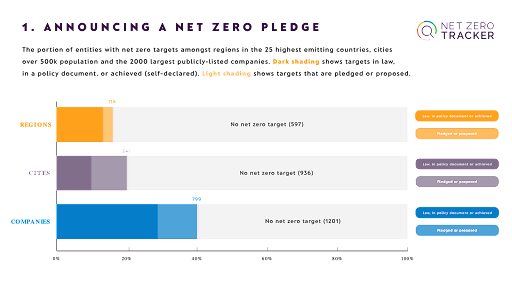
DDL hosted a side event with the Energy and Climate Intelligence Unit on ‘Balancing net zero integrity & momentum’ with two of the experts on the high-level expert group, Arunabha Ghosh and Jessica Omukuti, and other members of the Net Zero consortium, Drs. Thomas Hale and Angel Hsu, to discuss the current state of play and what is needed moving forward.
Capacity building around data collection and reporting is needed, including investments in next-generation digital technology that can help us get the speed and scale needed to diagnose issues like greenwashing when it happens.
Watch the full side event here.

Recent Comments